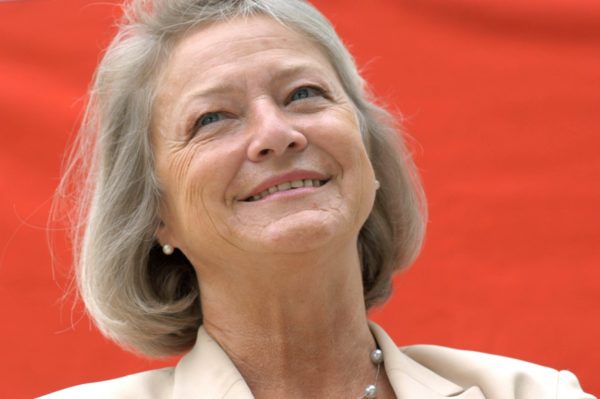This resource is great for:
Looking at journalism as a career.
Summary:
Listen to clips from journalist Kate Adie’s event at the 2014 Edinburgh International Book Festival and then use the discussion points to explore what it’s like to be a journalist – the responsibility that they have and the dangers that they face.
Introduction:
Kate Adie OBE is a highly respected British journalist.
Her most high-profile role was as Chief News Correspondent for BBC News, during which time she became well known for reporting from war zones around the world.
In 2014, Kate delivered the Frederick Hood Memorial Lecture at the Edinburgh International Book Festival. Listen to extracts from her discussion with journalist Allan Little and then use the discussion points below to start a class conversation.
Activity – Discussion Points
In the following extract, Kate Adie talks about her studies.
- Kate studied Swedish and Icelandic at university, before working her way up through the BBC to become one of Britain’s best-known journalists. Discuss the benefits of vocational courses versus getting work experience in industry.
- Do you agree with her assertion that young people today have a much clearer idea of their career path than she ever had?
- Kate mentions that she started her career before women’s lib had reached her university. What kind of challenges do you think this would have meant as she set out in her career?
- Do you think any of these challenges still exist for women today?
In the following extract, Kate is asked a question by the mother of a student who decided not to become a journalist because she wouldn’t be able to help the people she came across.
- Do you agree with Kate’s response to the question?
- Are there any ways in which journalists might be helping the people that they come across during their work?
- How much do you think it is the responsibility of journalists, or viewers at home, to help people affected by the issues we see on the news?
- In what ways could you help?
In the following section, Kate talks about the responsibility journalists have to report news in a fair way, and how the language they choose can influence their reports.
- Kate is asked how she decides as a journalist whether to call someone a ‘terrorist’, an ‘insurgent’ or a ‘freedom fighter’. What connotation does each of these words carry, and how might they influence people’s views?
- Find recent news articles and highlight any labels which are used in them to describe people. Do you think they are unbiased or do they carry connotations?
- Think of a recent major news story and find three reports of the story in different types of media – for example a tabloid newspaper, a “quality” newspaper, a website report. Note the differences in the way the story is told by the three different publications:
Which, in your opinion is the most reliable report, and what makes you think this?
Write your own version of the story, trying to give a completely unbiased report.
Do you think journalists have a responsibility to report news in an unbiased way? What dangers might there be if journalists do not do so?
Thinking about all of the extracts you have listened to:
- Why do you think it is important for journalists to report from the front line?
- Do you see Kate Adie as brave? Do you think you need to be brave to be a journalist?
- The topic of the Frederick Hood Lecture is inspiration. In what ways do you find Kate Adie inspirational?
Further information:
Visit the Reporters Without Borders website for more information about the attacks on freedom to report and the persecution of journalists around the world.
More information on the Frederick Hood Memorial Lecture:
In 2008 Frederick Hood died tragically in an avalanche at the age of 28.
Fred revelled in academia, studying in the UK, US and Italy. He was also active in the arts, debating and drama as well as in business and finance.
The Frederick Hood event was established by Fred’s former colleagues at Walter Scott to celebrate his life and his talents. The idea of an annual lecture under the auspices of the Edinburgh International Book Festival, with whom Walter Scott shares a Charlotte Square address, seemed an apt way to embrace the subjects, the city and the festival of which he was so passionate.
Inspiration comes in many forms and the ambition of the annual Frederick Hood Memorial Lecture is to highlight, honour and promote an inspirational individual or event. The pre-requisite is simply a story of inspiration, the source of which is limitless.
Supported by Walter Scott & Partners Limited

